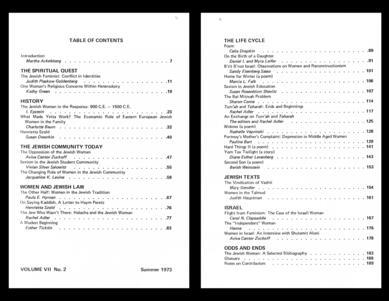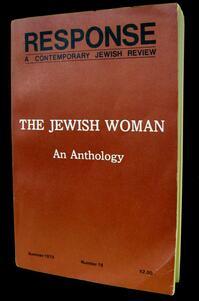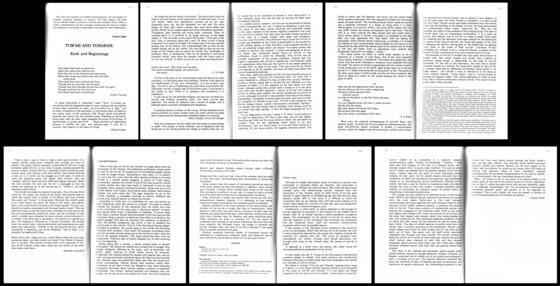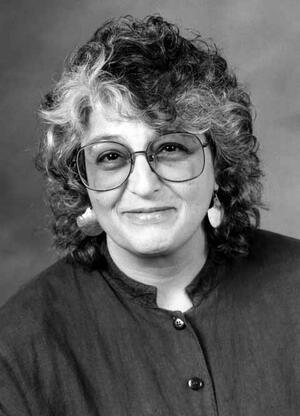Rachel Adler
The Response anthology represented a transformative moment in the history of Jewish feminism. In February of 1973, over 500 U.S. and Canadian women had come together at the first Jewish Women’s Conference in New York City. The size and diversity of the gathering were strong evidence that we were not just disaffected individuals. We were a movement. The anthology attested that we had achieved critical mass as an intellectual movement. We had something to say – indeed, many things to say. The anthology gathered together previously published work and new work, the work of political theorists, community activists, Judaica scholars, poets, educators, social scientists, and historians. And there was Judith Plaskow who, to my immense admiration, declared herself a theologian. I hadn’t yet understood that I had been writing theology, too. The Orthodox men who took me to task called it “ignorant drivel” or “pernicious garbage,” so I knew I was hitting a nerve, but I wasn’t exactly clear how.
I had two articles in the anthology: “The Jew Who Wasn’t There,” which had been first published in 1971 in the West Coast magazine Davka, and “Tum’ah and Ritual purity Taharah,” borrowed from the forthcoming Jewish Catalog (1973). “Tum’ah and Taharah” got written because I was asked a question about menstruation and mikveh (ritual bath) on a panel at the 1973 Jewish Women’s Conference, and I declined to answer with a sound-bite. The organizers offered a room and a time, and I said I would answer the question then. When I headed for the assigned room, I was stunned to see women lined up in the hallways, overflowing the room. We had to find a larger space. But I talked about the ideas I had been thinking through, and presented a very different way of thinking about purity and impurity. After I had spoken, Sharon Strassfeld came up to me and asked if I would put the presentation in writing for the Jewish Catalog. That was how I came to write it down.
Rachel Adler is Professor of Modern Jewish Thought and Judaism and Gender at Hebrew Union College-Los Angeles. She was one of the first theologians to integrate feminist perspectives and concerns into the interpretation of Jewish texts and the renewal of Jewish law and ethics. She is the author of Engendering Judaism, which won the National Jewish Book Award for Jewish Thought and Gratz College’s Tuttleman Foundation Award. Her articles include “Innovation and Authority: A Feminist Reading of the ‘Women’s Minyan Responsum,’” “The Battered Wife of God: Law, Violence and the Feminist Critique of the Prophets,” “The Virgin in the Brothel and Other Anomalies: Character and Context in the Legend of Beruriah,” and the frequently reprinted essays “In Your Blood, Live,” and “The Jew Who Wasn’t There,” which was first published in 1971 and is generally considered the first piece of Second Wave Jewish feminist theology.








amazing material...........i wish i'd found this years ago, but grateful for this feminism which is always vital, urgent and timely.